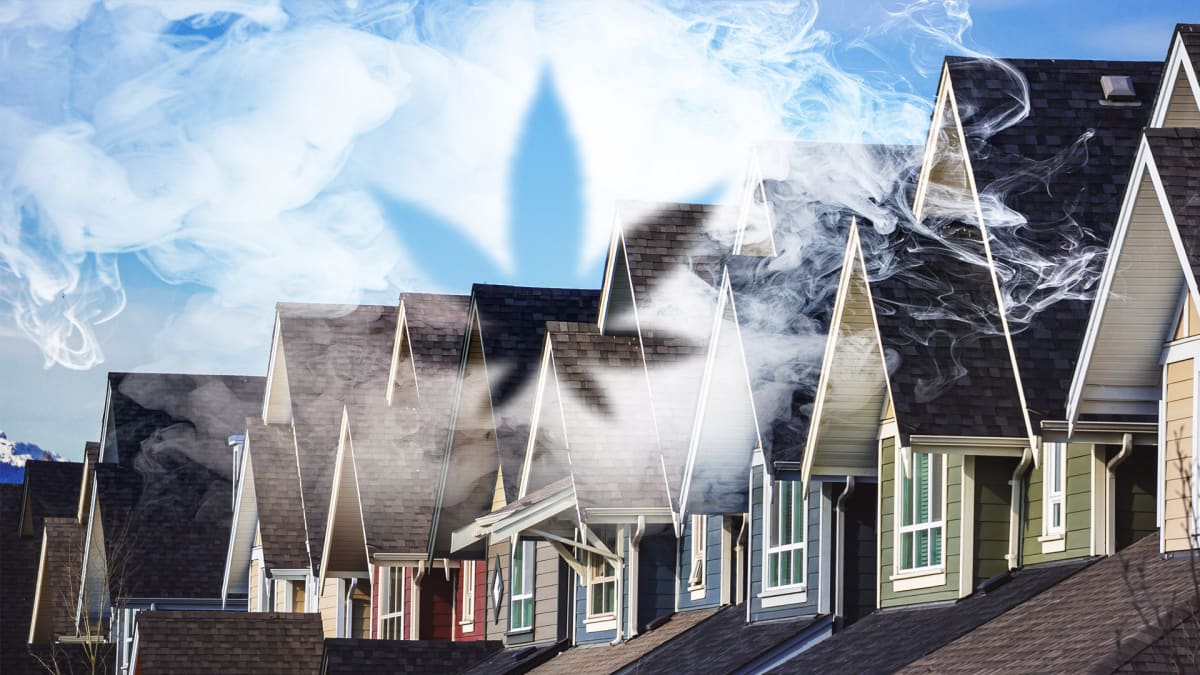
When it comes to cannabis legalization, many advocates argue it has a positive impact on local housing markets.
Proponents say it brings business and boosts certain rural areas' prospects, while opponents cite concern for children and often bring up the risks that tenants can cause to rental properties.
A new report from the National Association of Realtors found that, in states that had legalized marijuana more than five years ago, fewer property managers had seen lease additions that restrict smoking pot on the premises. The latest figure was 65% of property managers, down from 76% two years ago.
DON'T MISS: Cannabis Is Facing an Inflationary Buzzkill
And while one-fifth of homeowners in states that have legalized marijuana have seen values increase for properties situated close to dispensaries, the impact of legalization is more tepid than many might have hoped for.

Shutterstock
Legalization Hasn't Caused a Housing Market Boom
In states where marijuana was legalized over the past five years, 18% of the Realtors polled reported seeing more purchases than leases near dispensaries and other cannabis-connected businesses. That's down from 29% in 2021. And it's up from the 14% seen in states where marijuana has been legal for more than five years.
Fewer homes grew in value than in 2021, when one-fourth of those living near recently opened dispensaries reported seeing their property values go up.
This is very different from what occurred when, a decade ago, Colorado became the first state in the country to legalize recreational marijuana use and saw a rush of people move to the state as a result.
"If legal marijuana has an impact on the housing market, it’s hard to see that in Denver," Amy Cesario, a Compass (COMP) agent based in Denver, told Realtor.com. "We have a strong economy, and housing has been in demand here for years."
This does not mean that legalization's impact has been negative as much as in tandem with the rest of the market — 13% of agents in states where marijuana has been legal for more than five years saw a decrease in property values in their markets, only 5% saw an increase while the vast majority saw no change different from the long-term upward trajectory taking place in most places across the country.
Perception Legal Challenges May Drive Away Some Buyers
In some markets, the perception of growing crime has been driving away some buyers — the opening of a dispensary will, according to the NAR study, send crime rates up 18% on average. But 28% of those polled reported perceiving more crime even when that wasn't actually the case.
"There is not a perceived or actual change in states where only medical marijuana is allowed," says NAR's Senior Research Survey Analyst Matt Christopherson. "In states where it's allowed for recreation, there's a higher perception of crime.”
With the average single-family home in the U.S. growing in value by 6.3% between March 2022 and 2023, properties prices in most markets have increased independently of what is going on with legalization efforts.
But as years of unfettered growth come to an end and many markets start to show early signs of cooling, addenda limiting marijuana use in a given property may deter some potential renters and, as such, cause some landlords to reconsider terms.
Lease addenda restricting smoking on the property in states where it has been legal for over 5 years are down to 65% (from 76% two years ago), while addenda restricting growing are down to 27% (from 44% in 2021) where medical and recreational marijuana have been legal before 2018.







